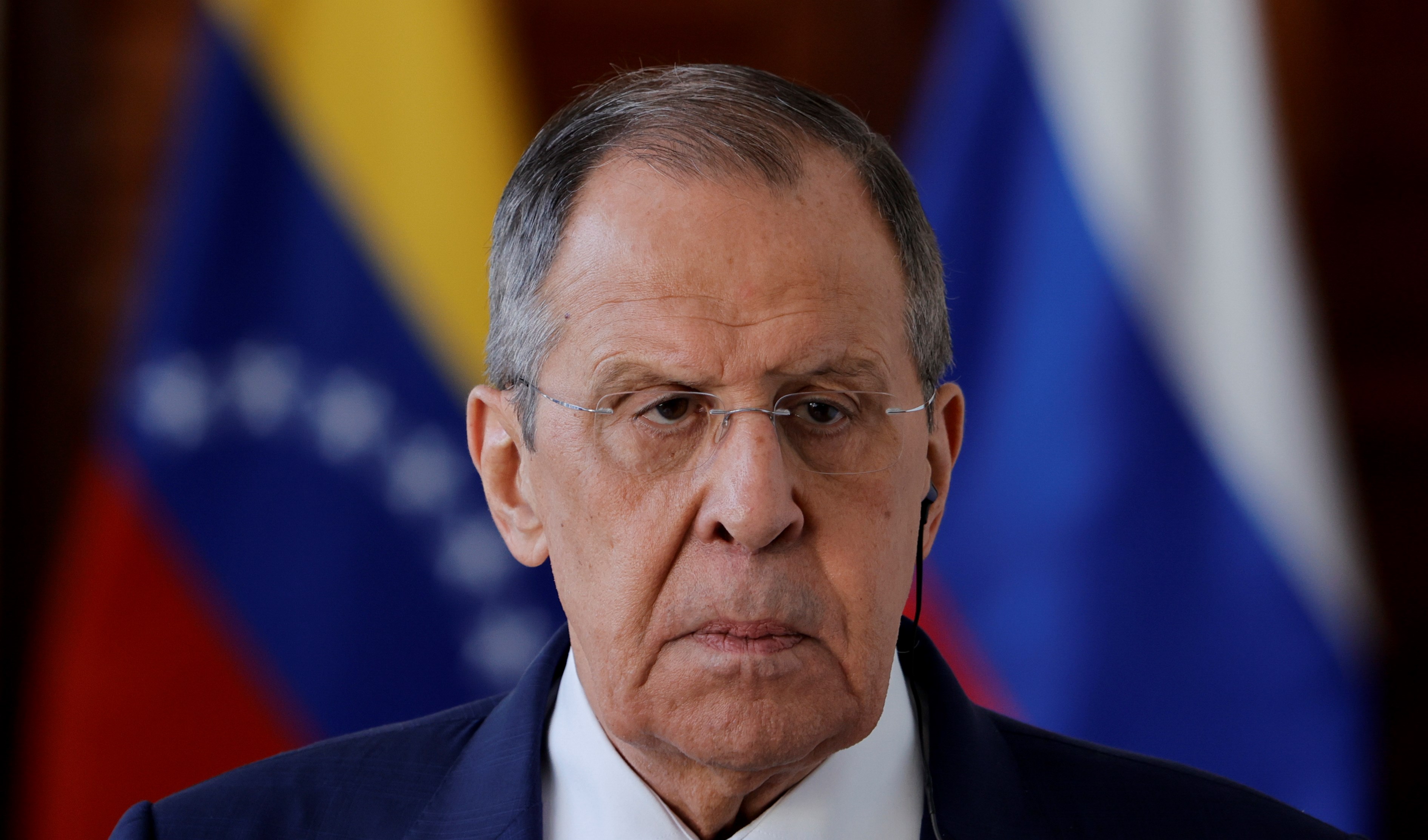Lavrov in Caracas, Brasília talks SWIFT alternative amid sanctions
During his Latin America trip, the Russian FM reaffirms that it is necessary to join forces to counter the attempts of "blackmail and illegal unilateral pressure of the West."
-

Russian Foreign Minister Sergey Lavrov attends a press conference at the Foreign Ministry in Caracas, Venezuela, Tuesday, April 18, 2023 (AP)
Russian Foreign Minister Sergey Lavrov, on his Latin America tour, urged countries facing similar challenges to "join forces" against Western sanctions' "blackmail", explaining that countries like Venezuela, Cuba, and Nicaragua are also subjected to economic sanctions and embargoes but they continued to "choose their own path."
While in Caracas, Lavrov reviewed with his Venezuelan counterpart, Yván Gil, alongside their respective delegations, hundreds of accords that have been inked in the past between the two countries. The agreements covered issues in the financial, energy, agricultural, and other sectors.
In a joint press statement, Lavrov said, "We fully support the position of our Venezuelan friends," adding, "It is their country... and we are going to support it in any way so that the Venezuelan economy becomes an independent economy from the pressures of the United States and other western actors."
It was also revealed, during the press address, that the two countries have been exerting efforts toward developing an alternative to SWIFT following the collective West sanctions against Russia that targeted global bank transfers through the system.
To that note, Lavrov reaffirmed that "it is necessary to join forces to counter the attempts of blackmail and illegal unilateral pressure of the West."
It is worth noting that on Tuesday night, the Russian Foreign Minister met Venezuelan President Nicolas Maduro. However, no statements were released following their meeting.
Brazil embraces multilateralism
Lavrov's trip started in Brazil where he met with Brazilian President Luiz Inacio Lula da Silva who has been under fire by the US after his China trip.
The main focus of Lula's visit to China was to push for trade de-dollarization between the Global South and settling financial transactions with local currencies. The Brazilian leader also urged BRICS nations to establish a common currency as the basis of trade.
Lula's journey to China is part of the leader's attempt to resurrect Brazil's multilateralism heritage, which was largely abandoned under previous President Jair Bolsonaro.
While on his China trip, Lula stated that the US should stop "encouraging war" in Ukraine.
"The United States needs to stop encouraging war and start talking about peace. The European Union needs to start talking about peace," Lula said at the time.,
He had previously proposed creating a special group of countries to facilitate peace talks between Moscow and Kiev, saying that he would discuss the proposition with Chinese President Xi Jinping during the visit.
In that regard, the US claimed that Lula has been "parroting Russian and Chinese propaganda."
Russia's top diplomat's Latin American tour will also take him to Nicaragua and Cuba -- countries whose leftist governments have hostile relations with the United States.
Regarding the war in Ukraine, Lavrov said that "we will resolve the situation" by upholding the UN founding charter's principles on the "sovereign equity of states, on the principle of indivisibility of security."
The Russian Foreign Minister also stated that "our task is to ensure that the UN charter is fully implemented, that the right to self-determination is not eliminated when it suits the West."
Next, Lavrov is set to visit Cuba and meet with officials there before heading to Nicaragua for his last stop.
Read more: US delaying issuing visas to Lavrov, Russia's UNSC delegation

 3 Min Read
3 Min Read








